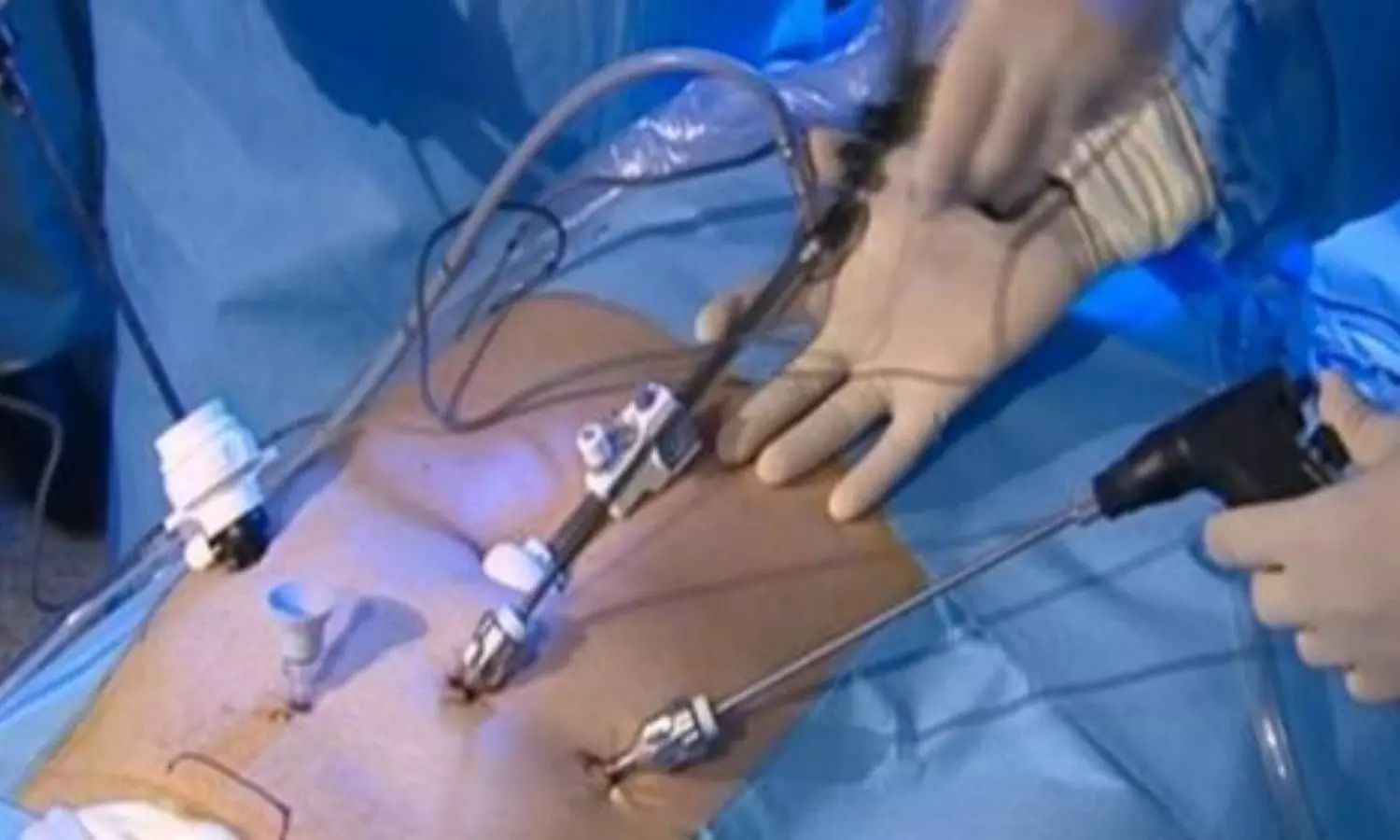- Home
- Medical news & Guidelines
- Anesthesiology
- Cardiology and CTVS
- Critical Care
- Dentistry
- Dermatology
- Diabetes and Endocrinology
- ENT
- Gastroenterology
- Medicine
- Nephrology
- Neurology
- Obstretics-Gynaecology
- Oncology
- Ophthalmology
- Orthopaedics
- Pediatrics-Neonatology
- Psychiatry
- Pulmonology
- Radiology
- Surgery
- Urology
- Laboratory Medicine
- Diet
- Nursing
- Paramedical
- Physiotherapy
- Health news
- AYUSH
- State News
- Andaman and Nicobar Islands
- Andhra Pradesh
- Arunachal Pradesh
- Assam
- Bihar
- Chandigarh
- Chattisgarh
- Dadra and Nagar Haveli
- Daman and Diu
- Delhi
- Goa
- Gujarat
- Haryana
- Himachal Pradesh
- Jammu & Kashmir
- Jharkhand
- Karnataka
- Kerala
- Ladakh
- Lakshadweep
- Madhya Pradesh
- Maharashtra
- Manipur
- Meghalaya
- Mizoram
- Nagaland
- Odisha
- Puducherry
- Punjab
- Rajasthan
- Sikkim
- Tamil Nadu
- Telangana
- Tripura
- Uttar Pradesh
- Uttrakhand
- West Bengal
- Medical Education
- Industry
Radical Cystectomy Improves Survival compared to Trimodal Therapy in Bladder Cancer

A comprehensive meta-analysis compared the treatment modalities for muscle-invasive bladder cancer (MIBC) by using either radical cystectomy (RC) or trimodal therapy (TMT). The findings were published in the Frontiers in Surgery.
This meticulous study explored the academic databases such as Scopus, PubMed, Cochrane, EMBASE, and others from 1966 to December 2023. This yielded data from 14 studies by encompassing 54,816 bladder cancer patients. Out of these, a total of 6,228 underwent trimodal therapy, while 48,588 opted for radical cystectomy.
The results unveiled a significant difference in survival rates with the RC group exhibiting higher overall survival than the TMT group (pooled hazard ratio [HR] = 1.23, 95% CI: 1.18–1.28, P < 0.001). Cancer-specific survival was significantly prolonged in the RC group (pooled HR = 1.47, 95% CI: 1.29–1.67, P < 0.001). Also, the patients in the TMT group faced an increased risk of all-cause mortality compared to their RC counterparts (pooled HR: 1.30, P < 0.001).
The meta-analysis suggests a clear advantage of radical cystectomy in terms of overall survival for the patients of muscle-invasive bladder cancer. The data strongly indicate that cancer-specific survival is also significantly prolonged in addition to better overall survival rates in individuals who opt for radical cystectomy when compared to trimodal therapy.
Also, the outcomes of this study conclude that the patients undergoing trimodal therapy face a higher risk of all-cause mortality by emphasizing the potential superiority of radical cystectomy as a treatment option for muscle-invasive bladder cancer. These findings contribute valuable insights to the ongoing discourse on optimizing therapeutic approaches for this challenging form of cancer.
Source:
Al-Qudimat, A. R., Singh, K., Ojha, L. K., Moustafa, D. A., Elaarag, M., Al-Zoubi, R. M., & Aboumarzouk, O. M. (2023). Comparing trimodal therapy with radical cystectomy in muscle-invasive bladder cancer: an updated meta-analysis. In Frontiers in Surgery (Vol. 10). Frontiers Media SA. https://doi.org/10.3389/fsurg.2023.1276746
Neuroscience Masters graduate
Jacinthlyn Sylvia, a Neuroscience Master's graduate from Chennai has worked extensively in deciphering the neurobiology of cognition and motor control in aging. She also has spread-out exposure to Neurosurgery from her Bachelor’s. She is currently involved in active Neuro-Oncology research. She is an upcoming neuroscientist with a fiery passion for writing. Her news cover at Medical Dialogues feature recent discoveries and updates from the healthcare and biomedical research fields. She can be reached at editorial@medicaldialogues.in



